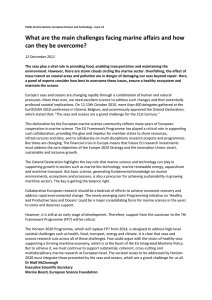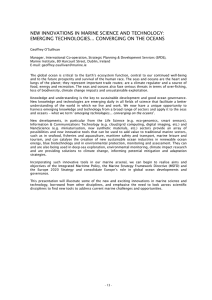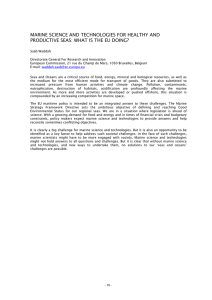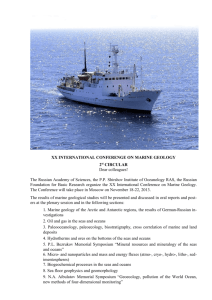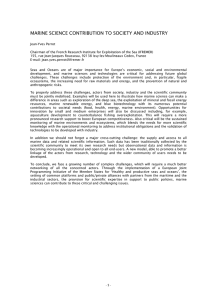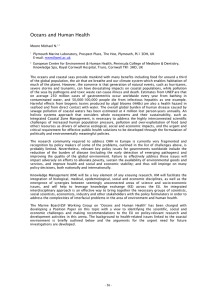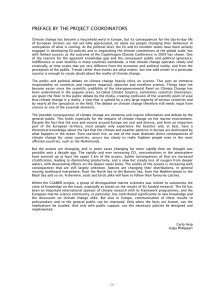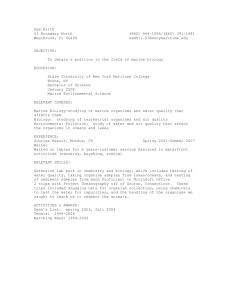SUPPORTING THE SCIENCE – FUTURE LOOK AT A NEW MARINE
advertisement
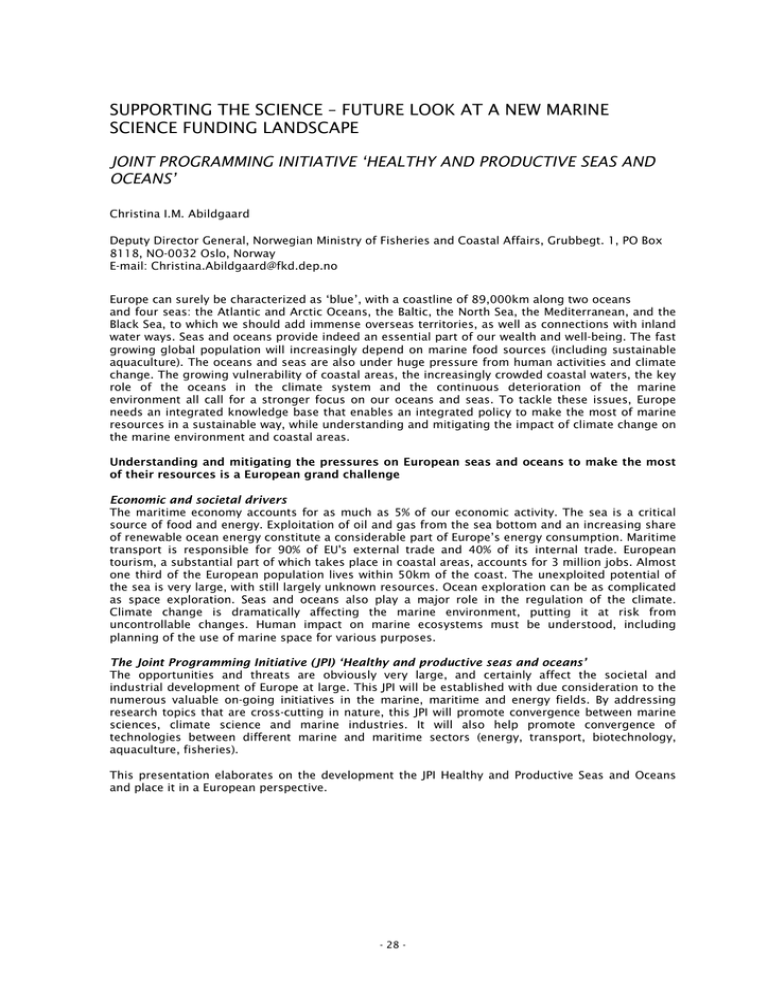
SUPPORTING THE SCIENCE – FUTURE LOOK AT A NEW MARINE SCIENCE FUNDING LANDSCAPE JOINT PROGRAMMING INITIATIVE ‘HEALTHY AND PRODUCTIVE SEAS AND OCEANS’ Christina I.M. Abildgaard Deputy Director General, Norwegian Ministry of Fisheries and Coastal Affairs, Grubbegt. 1, PO Box 8118, NO-0032 Oslo, Norway E-mail: Christina.Abildgaard@fkd.dep.no Europe can surely be characterized as ‘blue’, with a coastline of 89,000km along two oceans and four seas: the Atlantic and Arctic Oceans, the Baltic, the North Sea, the Mediterranean, and the Black Sea, to which we should add immense overseas territories, as well as connections with inland water ways. Seas and oceans provide indeed an essential part of our wealth and well-being. The fast growing global population will increasingly depend on marine food sources (including sustainable aquaculture). The oceans and seas are also under huge pressure from human activities and climate change. The growing vulnerability of coastal areas, the increasingly crowded coastal waters, the key role of the oceans in the climate system and the continuous deterioration of the marine environment all call for a stronger focus on our oceans and seas. To tackle these issues, Europe needs an integrated knowledge base that enables an integrated policy to make the most of marine resources in a sustainable way, while understanding and mitigating the impact of climate change on the marine environment and coastal areas. Understanding and mitigating the pressures on European seas and oceans to make the most of their resources is a European grand challenge Economic and societal drivers The maritime economy accounts for as much as 5% of our economic activity. The sea is a critical source of food and energy. Exploitation of oil and gas from the sea bottom and an increasing share of renewable ocean energy constitute a considerable part of Europe’s energy consumption. Maritime transport is responsible for 90% of EU's external trade and 40% of its internal trade. European tourism, a substantial part of which takes place in coastal areas, accounts for 3 million jobs. Almost one third of the European population lives within 50km of the coast. The unexploited potential of the sea is very large, with still largely unknown resources. Ocean exploration can be as complicated as space exploration. Seas and oceans also play a major role in the regulation of the climate. Climate change is dramatically affecting the marine environment, putting it at risk from uncontrollable changes. Human impact on marine ecosystems must be understood, including planning of the use of marine space for various purposes. The Joint Programming Initiative (JPI) ‘Healthy and productive seas and oceans’ The opportunities and threats are obviously very large, and certainly affect the societal and industrial development of Europe at large. This JPI will be established with due consideration to the numerous valuable on-going initiatives in the marine, maritime and energy fields. By addressing research topics that are cross-cutting in nature, this JPI will promote convergence between marine sciences, climate science and marine industries. It will also help promote convergence of technologies between different marine and maritime sectors (energy, transport, biotechnology, aquaculture, fisheries). This presentation elaborates on the development the JPI Healthy and Productive Seas and Oceans and place it in a European perspective. - 28 -
